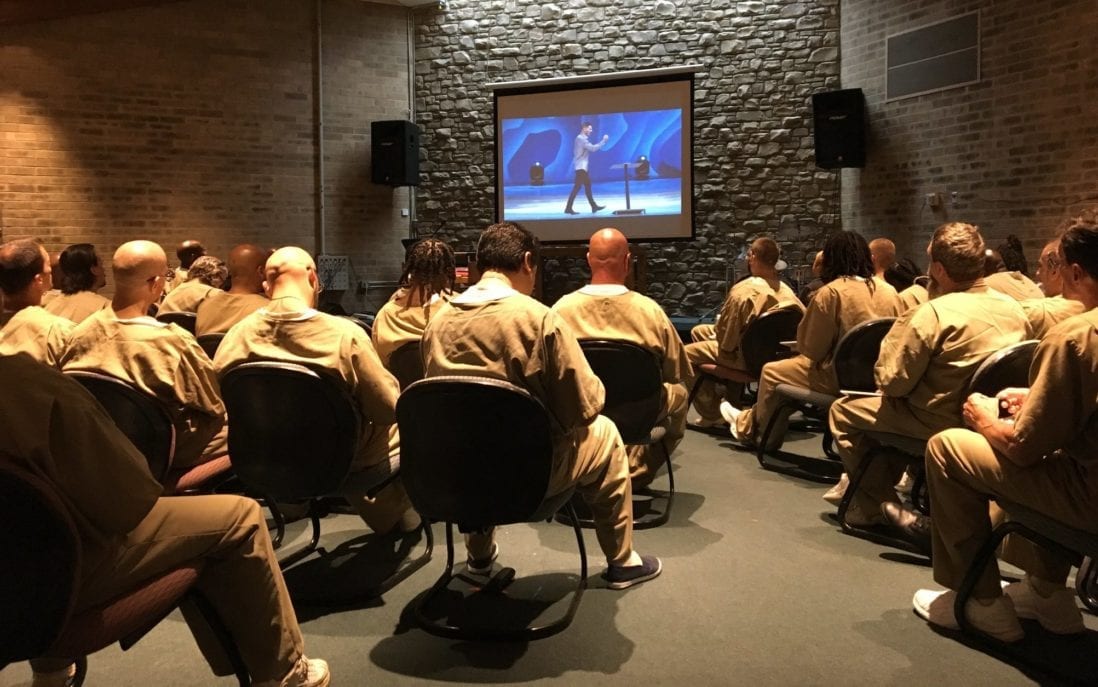
The growth of The Global Leadership Summit (GLS) in U.S. corrections facilities started in 2014 when the Global Leadership Network (GLN) formed a partnership with Prison Fellowship. As kindred spirits in the belief that everyone has influence, a partnership was formed to bring the GLS to incarcerated men and women as well as corrections staff. By 2015, the GLS was hosted in 11 corrections facilities. And by 2020, the GLS has grown to provide access to leadership development to more than 9,000 incarcerated men and women across the country. (In addition to facilities in the U.S., the GLS is hosted in a number of corrections facilities internationally each year as well.)
In 2021, the GLN hopes to bring the GLS into 100+ facilities in the U.S.
In 2021, the GLN hopes to bring the GLS into 100+ facilities in the U.S. as we lean into the expertise and support from corrections staff, wardens, chaplains, churches and organizations involved in prison ministry as well as several passionate volunteers and donors.
Two of the passionate leaders we want to highlight include Shelith Hansbro, who works for the Illinois Department of Corrections (IDOC); and Derek Swierczek, who is one of our lead volunteers in Illinois helping to onboard and support our prison sites across the state. With their help, and the help of a few other key volunteers, the GLN was able to bring the GLS into 10 new facilities in Illinois in 2020, despite the overwhelming obstacles a global health pandemic presented us with this year.
-

-
Shelith Hansbro
-

-
Derek Swierczek
In an interview with Shelith and Derek, we learned about the impact they’ve witnessed as a result of bringing the GLS to prison, and why they believe it is worth the investment of time see this ministry grow, not just to bring the GLS to more prisons in Illinois, but all across the U.S. as well.
A high school math teacher during the day, Derek Swierczek got into prison ministry by way of volunteering at his local church. He had his world rocked when he visited Angola State Penitentiary in 2017 and saw the impact that leadership development can have on a prison culture. “The impact is evident. If Angola State Penitentiary can change from one of the worst prisons in the world to a place where I felt safe and comfortable walking around the yard alone, talking with men, then any prison can change if given the right tools and opportunity.”
…any prison can change if given the right tools and opportunity.
Through a friend and fellow volunteer, Gordon Murphy, Derek met Dale DeNeal, pastor at Second Church in Danville, and learned about their prison ministry at Danville Correctional, one of the first locations to host the GLS in prison. “Through these connections, there was significant interest within IDOC and among various wardens who had attended the GLS to bring the GLS to more facilities,” said Derek. “Ultimately, shouldn’t the goal of any prison be to equip their offenders with the skills necessary to prevent recidivism? Why not do it right now so the culture while they’re still there can also be positively impacted?”
Shelith Hansbro, who has held various leadership roles in the IDOC over the years, including acting assistant warden of programs at Taylorville Correctional Center, sees the lives of the incarcerated differently than most. “I have been blessed to see the good in people regardless of their criminogenic path,” said Shelith. “I am blessed to engage men and women as they make strides to positively transform their lives and strive to do their best to achieve success.”
The GLS Creates a Ripple Effect
“I remember my first GLS experience,” said Shelith. “It’s an experience I will never forget. It was during a time when I felt overwhelmed, unsupported and somewhat isolated. I attended my first event in Springfield, Illinois. Everyone was so warm and friendly. Fellow conference goers were enlightening and willing to share with such transparency that I felt welcome and blessed to be there.”
I am blessed to engage men and women as they make strides to positively transform their lives and strive to do their best to achieve success.
After Shelith’s first GLS experience, she didn’t hesitate to share the event to more people, including the facility where she worked. “I wanted everyone to experience what I felt,” said Shelith. “I shared it with my friends and colleagues and decided if I had the opportunity to host the GLS, I would.”
Shelith indeed discussed bringing the GLS to Taylorville Correctional Center and they all agreed that it was worth it to host. “I made contact with Gordon Murphy and Chuck Brewer, two incredible GLN volunteers who serve prisons and wardens in Illinois, and the rest is history,” said Shelith. “During our conversations, I mentioned we needed a screen and they immediately helped us acquire one! On the first day of the Summit, Chuck and Gordon visited our site to make sure everything was going fine. They are genuine, caring and kind individuals who have enriched my life and helped me do the same for others!”
At the first GLS event at Taylorville in August 2019, they had more than 130 men participate!
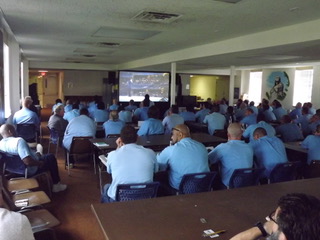 Like Shelith, Derek’s positive experience in being a part of bringing the GLS to prison is similar. He first volunteered at the prison site in Danville, and then later had the opportunity to help bring the GLS to the prison he had been volunteering. Then in 2019, Sheridan Correctional hosted their very first GLS. “Seeing a group of offenders be so appreciative of the opportunity to engage in a world class leadership opportunity softens my heart!” said Derek. “Many of them truly usually feel forgotten. Many want to be a better person, especially when they get released and go back to their families and communities. So, seeing men who feel very little worth and value get excited to have volunteers come to simply digest all the leadership lessons with them is so exciting and rewarding!”
Like Shelith, Derek’s positive experience in being a part of bringing the GLS to prison is similar. He first volunteered at the prison site in Danville, and then later had the opportunity to help bring the GLS to the prison he had been volunteering. Then in 2019, Sheridan Correctional hosted their very first GLS. “Seeing a group of offenders be so appreciative of the opportunity to engage in a world class leadership opportunity softens my heart!” said Derek. “Many of them truly usually feel forgotten. Many want to be a better person, especially when they get released and go back to their families and communities. So, seeing men who feel very little worth and value get excited to have volunteers come to simply digest all the leadership lessons with them is so exciting and rewarding!”
…seeing men who feel very little worth and value get excited to have volunteers come to simply digest all the leadership lessons with them is so exciting and rewarding!
“Our criminal justice system often focuses on the ‘penalization’ of the incarcerated versus the ‘correctional’ side of the rehabilitative process,” said Derek. “How are the convicted supposed to reenter society and be productive members of their communities if they’re not learning the necessary skills? The incarcerated are yearning for opportunities to learn skills that will serve them both inside their current facility and outside when/if they get released. The GLS truly brings men and women inside prisons hope.”
The GLS Can Transform Prison Culture
Both Derek and Shelith emphasized the impact that the GLS can have on prison culture, and why the value for the incarcerated and the staff is so worth the time and effort to invest in leadership development and provide much needed hope. “The sustained leadership development via the GLS is worth all the effort!” exclaimed Derek. “A safer environment for both staff and offenders is a win for all, and our society. After seeing men visibly and audibly appreciative of Warden Gomez for bringing the GLS to Sheridan in 2019, after looking at him as someone who was against them, was pretty awesome to witness! This kind of event can change the culture of prison, just like it did in Angola and Danville.”
A safer environment for both staff and offenders is a win for all, and our society.
“Employees and the incarcerated share the same environment,” continued Shelith. “We must intentionally work to create and maintain safe, secure living environments—this is more likely to happen when we all feel included, valued and supported, and the GLS creates a platform for this to happen.”
The Power of Partnership to Multiply Impact
“It excites me to engage with organizations like the Global Leadership Network to provide resources for the incarcerated and our corrections staff,” said Shelith. “To work with families to reestablish their bonds with their loved ones and to hear those stories of success when they return home is why I do what I do. There are leaders in every segment of our population. They come from all ethnicity groups and cultures and their influence is felt by many. The GLS nurtures those leaders by giving them the confidence, support and the tools to positively impact the lives of others.”
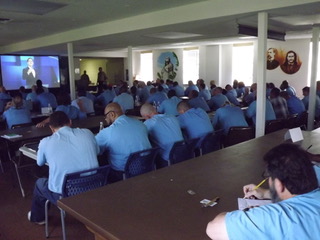 “I am so encouraged by the volunteers who give of their time, resources and donations to make the GLS possible in prison,” Shelith continued. “This work is not for the faint of heart. I have felt supported, uplifted and validated during times of uncertainty and isolation. I am so happy to be a part of the vision to provide leadership opportunities to individuals who can positively impact others. And it starts with empowering them to be their best selves.”
“I am so encouraged by the volunteers who give of their time, resources and donations to make the GLS possible in prison,” Shelith continued. “This work is not for the faint of heart. I have felt supported, uplifted and validated during times of uncertainty and isolation. I am so happy to be a part of the vision to provide leadership opportunities to individuals who can positively impact others. And it starts with empowering them to be their best selves.”
Derek offers advice to other leaders who may be considering bringing the GLS to their local corrections facilities. “The key is having a chaplain or warden who believes in the potential of the GLS and is willing to do what it takes to make it happen. Considering there are so many tech components to streaming the GLS, simply pulling it off in any of IL’s antiquated technology facilities is definitely an ‘Only God!’ accomplishment! Critical volunteers like Gordon Murphy and Chuck Brewer, who have been involved in prison ministry in Illinois for a long time, were instrumental in connecting with us in figuring out that we might have 10 new facilities interested in hosting. This visionary process laid the groundwork to what happened in August of 2020 and what is going to happen in October and November with the Summit Replays, even despite Covid-19!”
To work with families to reestablish their bonds with their loved ones and to hear those stories of success when they return home is why I do what I do.
It is such an honor for the Global Leadership Network to partner with such incredible volunteers like Shelith, Derek, Gordon and Chuck. To serve the incarcerated, reminding them of their value and providing opportunities for them to gain a new purpose for their lives is truly an honor. In 2020, we are just getting started toward a goal to reach hundreds of thousands more people through the GLS, but with incredible partners like these, anything is possible!


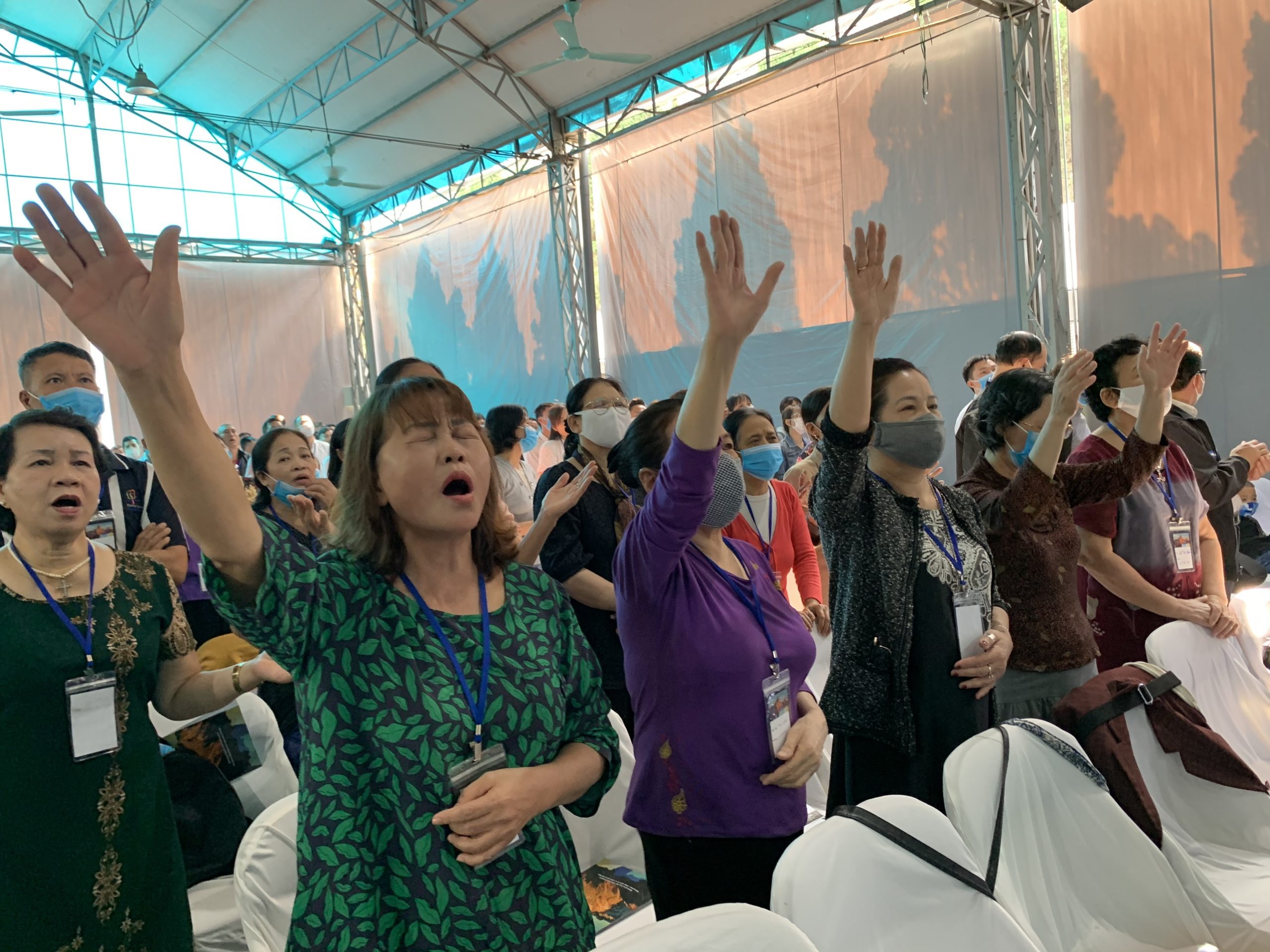
 It must’ve been God’s idea to have me attend The Global Leadership Summit. I am supporting some orphan children—They were abandoned by their parents or their parents were sent to prison. They are very different from other children because they have suffered from great grief and loss.
It must’ve been God’s idea to have me attend The Global Leadership Summit. I am supporting some orphan children—They were abandoned by their parents or their parents were sent to prison. They are very different from other children because they have suffered from great grief and loss. Growing up, my family provided me with the best resources. I was doing well. But things changed completely when I slipped into the trap of drugs. I wasn’t myself and drugs took away my self-esteem. I was in deep pain and miserable. My family business went down, and my family life hit rock bottom too. When things were about to collapse completely and my family was about to leave me, God stepped in and embraced my pain and guilt. I quit my addiction. And now I am able to be a good father to my four children.
Growing up, my family provided me with the best resources. I was doing well. But things changed completely when I slipped into the trap of drugs. I wasn’t myself and drugs took away my self-esteem. I was in deep pain and miserable. My family business went down, and my family life hit rock bottom too. When things were about to collapse completely and my family was about to leave me, God stepped in and embraced my pain and guilt. I quit my addiction. And now I am able to be a good father to my four children.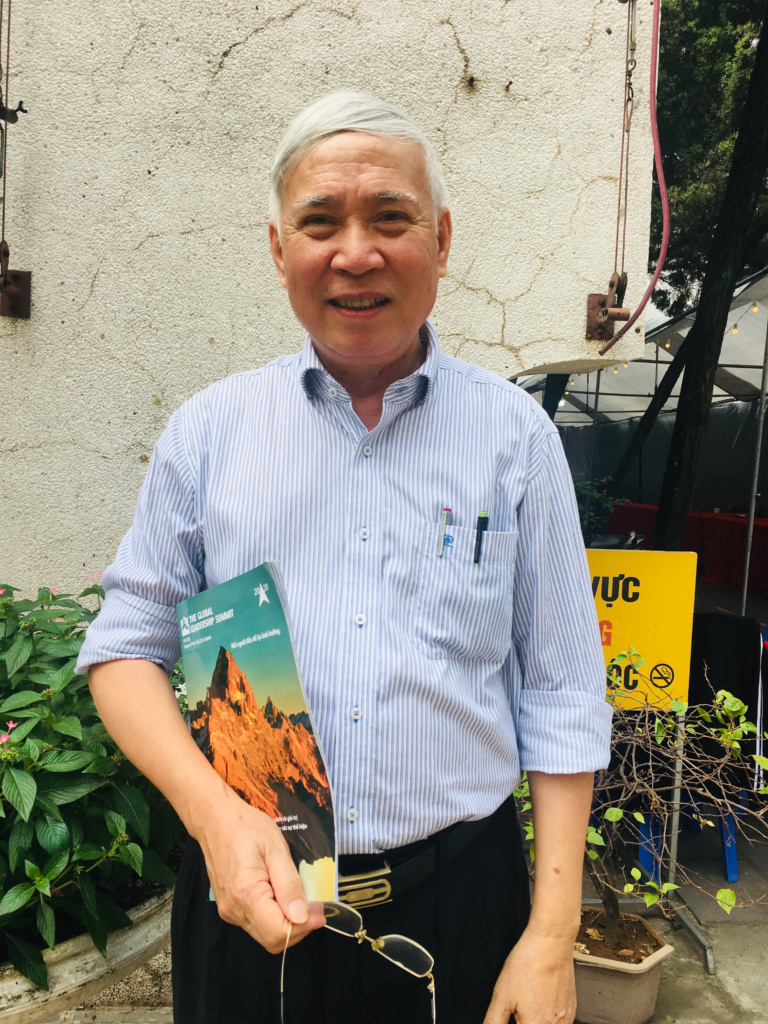





 Like Shelith, Derek’s positive experience in being a part of bringing the GLS to prison is similar. He first volunteered at the prison site in Danville, and then later had the opportunity to help bring the GLS to the prison he had been volunteering. Then in 2019, Sheridan Correctional hosted their very first GLS. “Seeing a group of offenders be so appreciative of the opportunity to engage in a world class leadership opportunity softens my heart!” said Derek. “Many of them truly usually feel forgotten. Many want to be a better person, especially when they get released and go back to their families and communities. So, seeing men who feel very little worth and value get excited to have volunteers come to simply digest all the leadership lessons with them is so exciting and rewarding!”
Like Shelith, Derek’s positive experience in being a part of bringing the GLS to prison is similar. He first volunteered at the prison site in Danville, and then later had the opportunity to help bring the GLS to the prison he had been volunteering. Then in 2019, Sheridan Correctional hosted their very first GLS. “Seeing a group of offenders be so appreciative of the opportunity to engage in a world class leadership opportunity softens my heart!” said Derek. “Many of them truly usually feel forgotten. Many want to be a better person, especially when they get released and go back to their families and communities. So, seeing men who feel very little worth and value get excited to have volunteers come to simply digest all the leadership lessons with them is so exciting and rewarding!” “I am so encouraged by the volunteers who give of their time, resources and donations to make the GLS possible in prison,” Shelith continued. “This work is not for the faint of heart. I have felt supported, uplifted and validated during times of uncertainty and isolation. I am so happy to be a part of the vision to provide leadership opportunities to individuals who can positively impact others. And it starts with empowering them to be their best selves.”
“I am so encouraged by the volunteers who give of their time, resources and donations to make the GLS possible in prison,” Shelith continued. “This work is not for the faint of heart. I have felt supported, uplifted and validated during times of uncertainty and isolation. I am so happy to be a part of the vision to provide leadership opportunities to individuals who can positively impact others. And it starts with empowering them to be their best selves.”
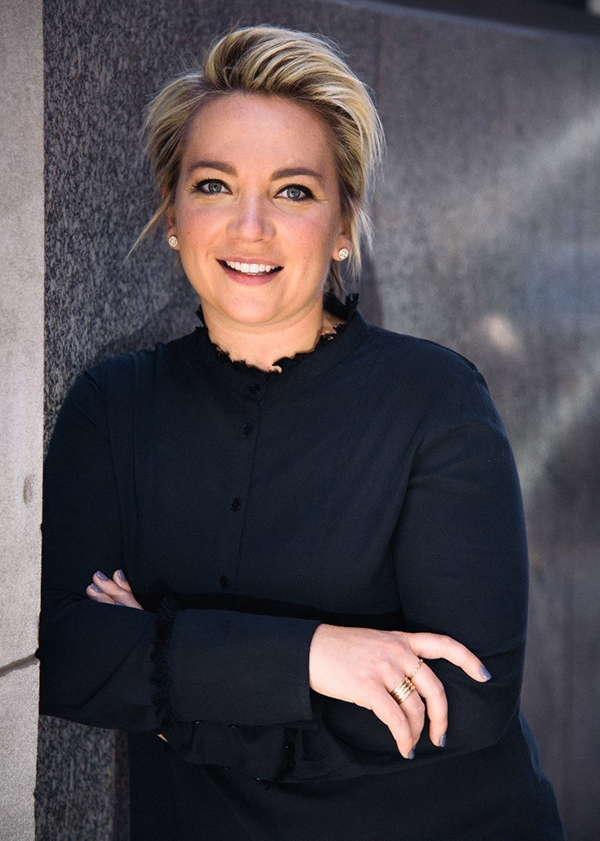
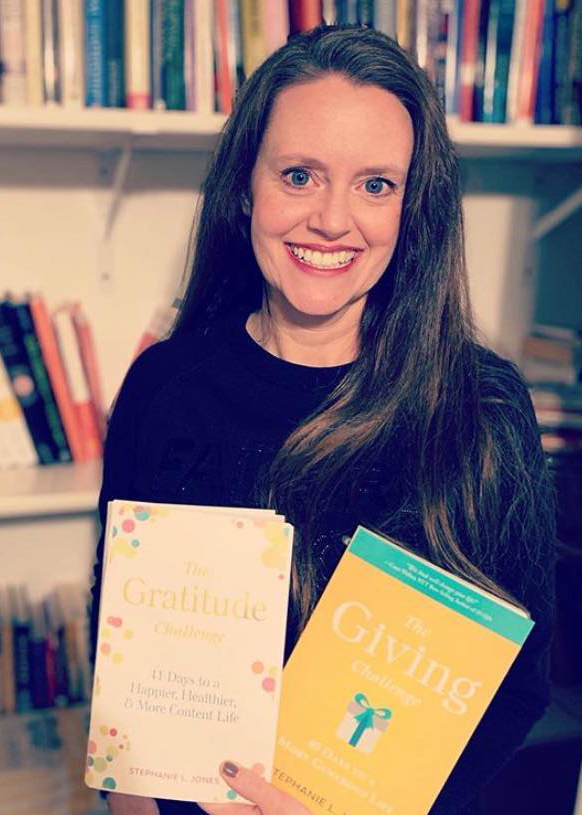


Recent Comments